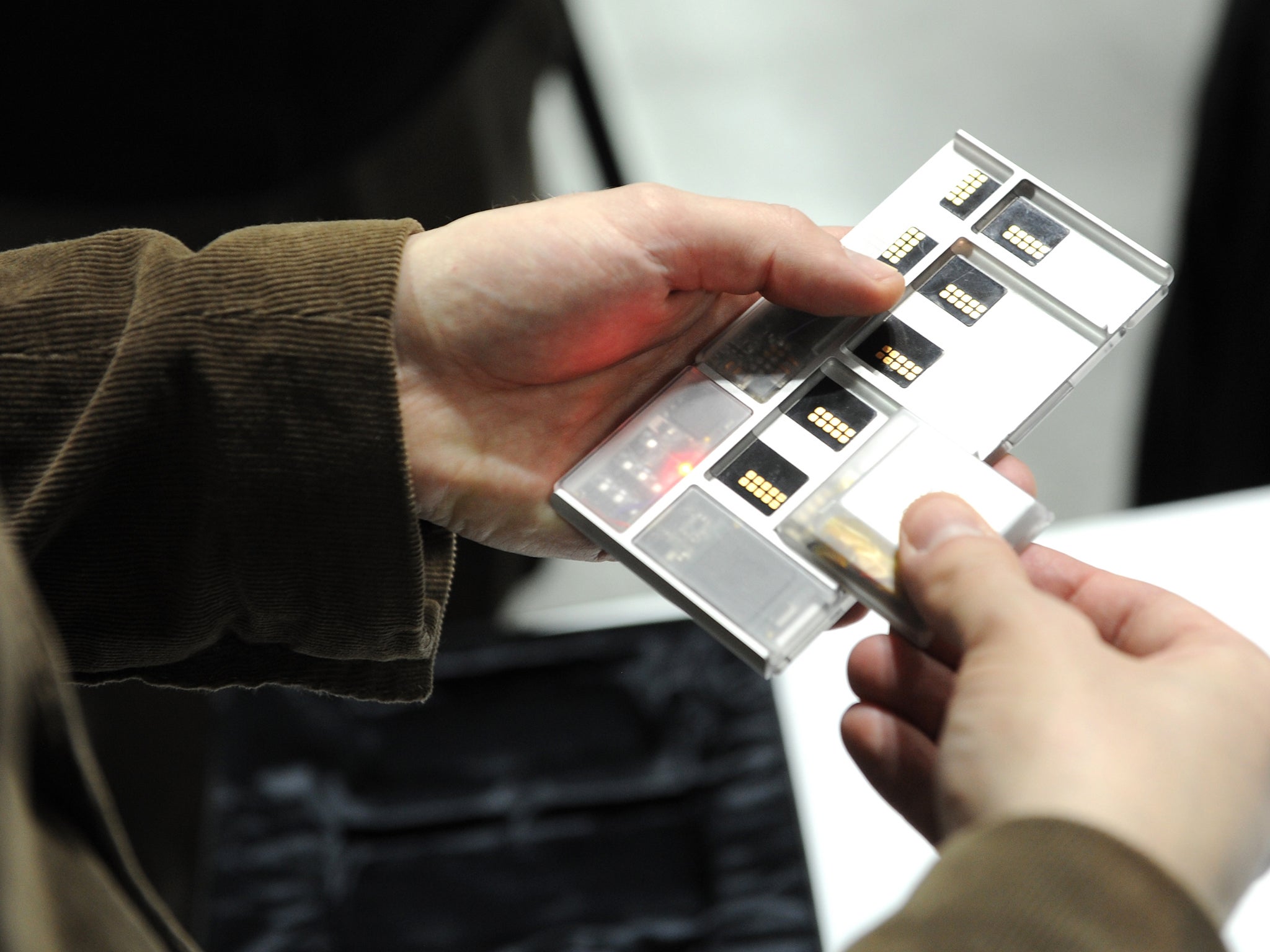Google to launch modular phone that can switch parts in and out
‘Project Ara’ smartphone will allow users to swap batteries, speakers and cameras in and out as needed

Your support helps us to tell the story
From reproductive rights to climate change to Big Tech, The Independent is on the ground when the story is developing. Whether it's investigating the financials of Elon Musk's pro-Trump PAC or producing our latest documentary, 'The A Word', which shines a light on the American women fighting for reproductive rights, we know how important it is to parse out the facts from the messaging.
At such a critical moment in US history, we need reporters on the ground. Your donation allows us to keep sending journalists to speak to both sides of the story.
The Independent is trusted by Americans across the entire political spectrum. And unlike many other quality news outlets, we choose not to lock Americans out of our reporting and analysis with paywalls. We believe quality journalism should be available to everyone, paid for by those who can afford it.
Your support makes all the difference.Google’s new modular smartphone is set to be launched, allowing users to swap bits into and out of the phone as they want.
The smartphone is a structural frame, like a skeleton, that users can then add different parts to. Extra batteries, a camera or different displays can all be put in using the modular system.
It will also allow users to take out old parts or ones that aren’t working any more, and replace them with new models.
Google hopes that will allow for less environmental waste, since people will be disposing of less parts of their phone, and will make each phone last longer. Each frame is expected to last about six years.
The phone will launch with modules including speakers, cameras and processors.
But Google is also releasing a Module Developers Kit (MDK), which will allow third party companies to make modules for the phone. Some companies have already signed up to do so.
The different parts swap in and out using magnets.
The first trials will be in Puerto Rico.
Join our commenting forum
Join thought-provoking conversations, follow other Independent readers and see their replies
Comments